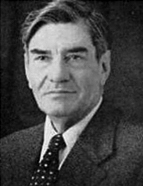

Cortesão was a strong advocate for Portugal's presence and sovereignty in its overseas territories, a stance he maintained throughout his life. Despite facing ideological opposition that led to his exile, his sympathies and collaboration with the regime, which began in the mid-1950s, became particularly evident during the 1960s, especially following the outbreak of armed conflicts in Portugal's African colonies. Even as he grew ideologically closer to the conservative nationalism of the Estado Novo, Cortesão was still recognised as an authority in cartographic history, his expertise unchallenged domestically and widely acknowledged internationally.
A speech he delivered at the end of the 1962 Overseas Conferences, which emphasised the priority of discovery, occupation, and civilising efforts by the Portuguese, became a cornerstone of Estado Novo’s foreign diplomatic propaganda. It is important to note that Cortesão’s principles mirrored those that guided the research of the Viscount of Santarém a century earlier. During his time, Santarém, a Miguelist in self-imposed exile in Paris, supported the diplomatic efforts of liberal governments to counter French claims over Portuguese-occupied territories along the West African coast.
In late 1963, Cortesão became embroiled in a heated controversy with English historian Charles Boxer over Boxer's recently published book Race Relations in the Portuguese Colonial Empire, 1415-1825. In a series of five articles published in the Diário Popular [People's Journal] between 27 December 1963 and 4 January 1964, under the general title Um Livro Insidioso [An Insidious Book], Cortesão refuted Boxer's historiographical analysis. While acknowledging Boxer’s expertise in Portuguese overseas expansion, Cortesão accused him of lusophobia, aligning his argument with the regime’s official stance on Portuguese overseas territories.
